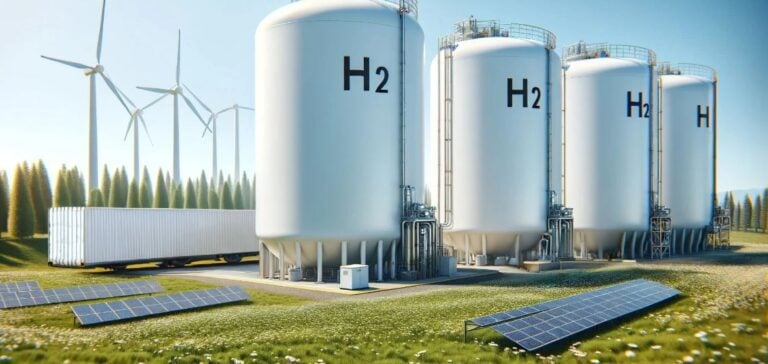Israel and the United States are strengthening their strategic partnership in sustainable energy through the BIRD Energy program (Binational Industrial Research and Development Energy). During an executive committee meeting on December 9, 2024, the program approved funding of 7.5 million dollars to support five innovative projects. These initiatives, representing a total investment of 16 million dollars, including private contributions, aim to develop sustainable energy solutions while fostering bilateral collaboration.
Innovative and Strategic Projects
The five selected projects span various technological domains, from hydrogen to energy efficiency. They include:
– Lucy Borchard Shipping (Israel) and Newlight Marine Technologies (United States): Development and testing of hydrogen as a dual-use fuel for marine engines, aiming to reduce the carbon footprint of maritime transport.
– Nitrofix (Israel) and 1S1 Energy (United States): Creation of a new generation of green ammonia, considered a key alternative for energy transition.
– OASIX Energy (Israel) and EN-POWER GROUP (United States): Demonstration and validation of a high-efficiency heat pump combined with dual thermal storage for residential buildings.
– Phinergy (Israel) and New York Power Authority (United States): Implementation of aluminum-air technology to offer a clean alternative to emergency generators.
– Plasticback (Israel) and Freepoint Eco-Systems (United States): Development of a chemical process for recycling PVC waste streams, contributing to a more sustainable plastic management system.
Strengthened Bilateral Collaboration
Since its inception in 2009, the BIRD Energy program, established under the Energy Independence and Security Act of 2007, has been promoting innovative energy technologies by connecting companies and institutions from both countries. The funding is allocated through a rigorous review process focused on the technological merits and commercialization potential of the proposed projects. Participants must provide at least 50% of the total costs and commit to repaying part of the funds in case of commercial success.
Dr. Andrew Light, U.S. Assistant Secretary of Energy for International Affairs, stated: “This year’s selected projects demonstrate the effectiveness of the bilateral collaboration between the United States and Israel in advancing critical technologies. This initiative reflects our commitment to finding sustainable solutions to global energy challenges.”
Yossi Dayan, Director General of the Israeli Ministry of Energy and Infrastructure, emphasized: “BIRD Energy builds a unique ecosystem where innovation and collaboration meet to address today’s energy challenges. These projects illustrate the potential of Israeli and American companies to act together for a sustainable energy future.”
A Dynamic Future
With this new round of funding, the BIRD Energy program continues its mission to support technological innovation while strengthening the ties between Israel and the United States. These initiatives are not limited to research; they also pave the way for commercialization and adoption of sustainable energy technologies in global markets. This strategic collaboration represents a unique opportunity for both countries to play a leading role in the global energy transition.






















